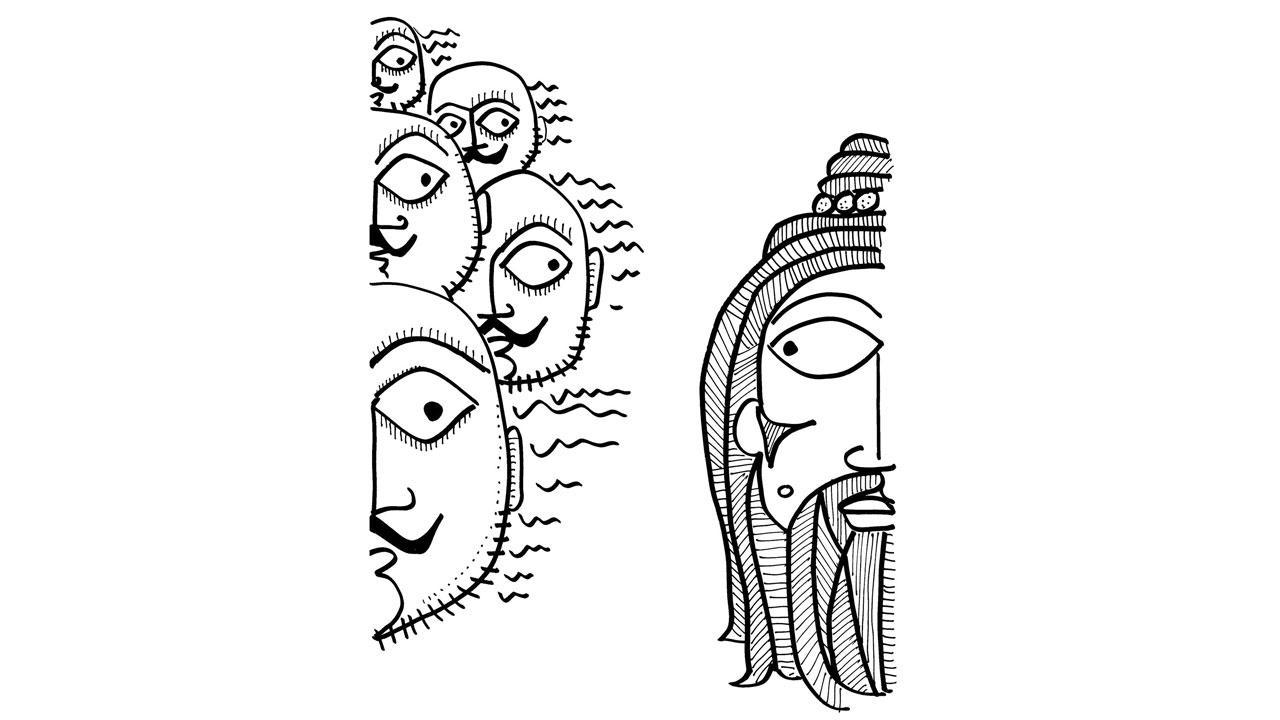Monks who loved combat
Updated On: 07 January, 2024 07:01 AM IST | Mumbai | Devdutt Pattanaik
The version written by Shankara’s followers that makes him the winner or the version written by Buddhists that makes Shankara the loser?

Illustration/Devdutt Pattanaik
 We would like to believe that saints are above mundane rivalries, and have conquered the ego, which means they have no urge to compete or conquer. But the same is not true of their followers who write hagiographies (exaggerated biographies) and fill it with miraculous events and triumphant debates, to make their guru even more fabulous.
We would like to believe that saints are above mundane rivalries, and have conquered the ego, which means they have no urge to compete or conquer. But the same is not true of their followers who write hagiographies (exaggerated biographies) and fill it with miraculous events and triumphant debates, to make their guru even more fabulous.
As per Shankara’s hagiographies, during his famous debate with Mandan Mishra, garlands were put around the competitors’ necks and the winner was the one whose garland remained fresh, even at the end of the debate. Needless to say, as per his followers, his garland remains fresh. However, in the book of Buddhist “history” written by Taranath in the 16th century, Shankara is defeated by a Buddhist monk called Dharmakirti. Shankara drowns himself in Ganga and takes rebirth to once again debate with the Dharmakirti. This happens three times before Shankara accepts Buddhism as true faith. Now, which version is the true version? The version written by Shankara’s followers that makes him the winner or the version written by Buddhists that makes Shankara the loser?



